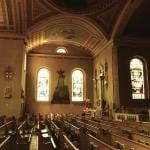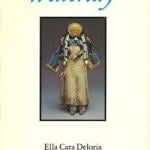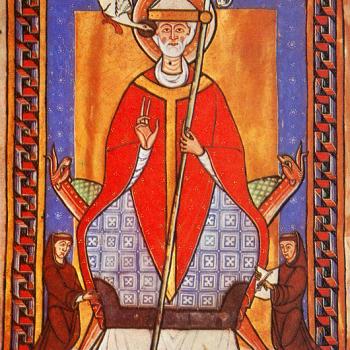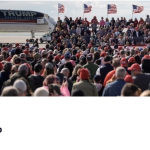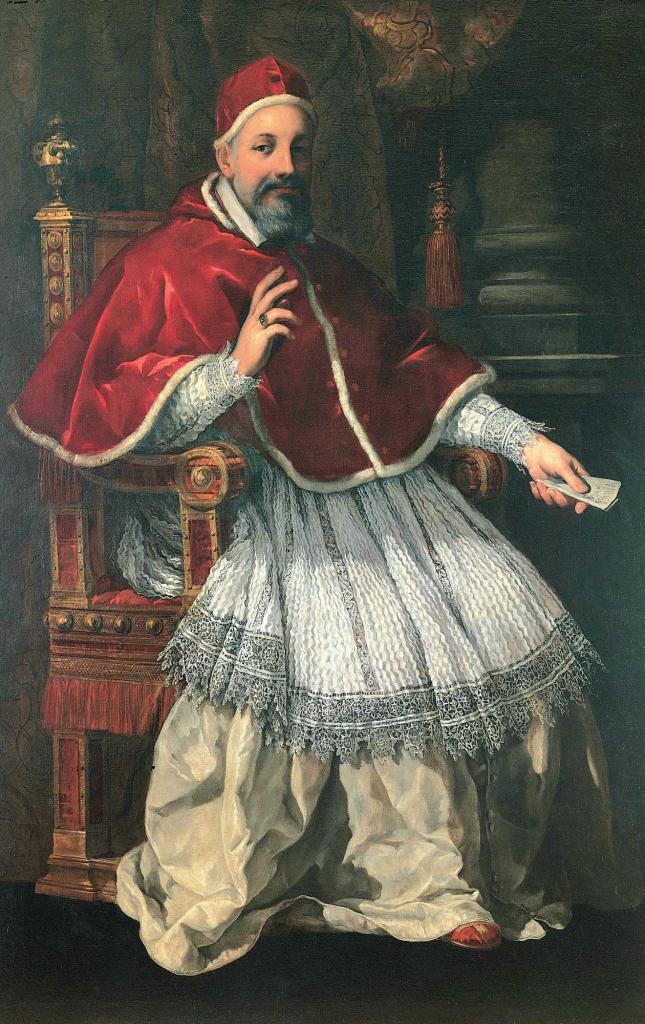
So they elected a new pope. As a member of a Protestant denomination, I have been oriented all my life to view the doings of the Roman Catholic church with suspicion. With our awareness of our Reformation roots always mind, Seventh-day Adventists remain watchful any attempts of Catholicism to expand its influence, align with political power, or seduce Protestants away from their commitments. Why should I pay attention to the leadership changes within this suspect organization for any reason except as harbingers of prophetic fulfillments?
Still, in the hours after the white smoke appeared above the Vatican, my friends and I texted frenetically, trading memes and links and bits of information about Cardinal Robert Francis Prevost. We exchanged gossip, speculated, and did some collective gasping over the unfolding information. It felt more like celebrity news than like something that might impact my church life. And there’s a history to that.
I’m an early modernist who studies Catholics in seventeenth-century England. The morning Leo XIV was announced, I had woken up to read how English Catholic refugees in Portugal were reacting to the realities of their new pope, Urban VIII. A member of the Barberini family, Urban was deeply concerned with extending the political power of the papal states and enriching his own connections. He’s probably most well known for presiding over the trial of his one-time friend Galileo, but for both Protestants and Catholics at the time, his attitude toward the Hapsburg powers was much more significant.
While the Hapsburgs had styled themselves the great defenders of Catholicism in the face of Protestantism, Urban was more worried about their incursions into Italy. So Urban sided with the Protestants in the Thirty Years War, arguably one of the last and definitely the most destructive of what have been called the Wars of Religion. For my English Catholics hiding out in Hapsburg lands to find ways to pass their faith along to their children, the election of Urban would mean less funding for the institutions they were building to educate missionaries and the next Catholic generation. For German Catholics, it contributed to the breakup and utter destruction of their lives as the Thirty Years War and its aftermath killed up to 60% of the inhabitants of many of the Central European states.
And yet, neither English Protestants nor Catholics in 1623 did hardly any gossiping about this. Not for them the analysis of the personal politics of the new pope or speculation about what his “agenda” would be—newspapers wouldn’t be invented for another few decades, and the “public sphere” of thickly engaged discussion was a development of the later seventeenth century’s “news revolution.” But they would understand why we talk about the pope in terms that are political rather than primarily spiritual. And as I investigated the nature of my own engagement with this new pope, I found myself calling on this early modern context to help me understand why it matters to Protestants who do not look to the pope for spiritual leadership.
The Papacy has been political for a long time. But it might be said that the Renaissance popes took it to a whole new level. Seventeenth century Christians of all denominations had come of age among popes who saw their job as extending the wealth and power of the church in the face of the Protestant threat, the competition with European monarchs whose power over the Christians in their territory was unprecedented, and the connection to vast new lands who had never heard the gospel. Few Catholics in this period expected their popes to be particularly devout—their job was administrative.
And while the pope was supposed to care for the whole international church, the ethnic and citizenship identity of these men (always Italian after the debacle of electing a French pope once led to the Great Schism and the Avignon papacy) shaped alliances within the church and impacted access to funding and sponsorship. English Catholics, for instance, had to make sure that they had good Italian confederates in Rome in order to get money for their refugee communities. While Christian observers couldn’t have predicted in 1623 at the election of Urban VIII what a horror show the Thirty Years War would be, they did know that this particular pope’s primary concern for Italy and the papal territories there would always trump any sympathies he might have for his wider flock. Those who were paying attention might have wondered how his proclivities would contribute to their military and political realities.
So, we are in good company historically as we consider the politics of Roman Catholic leadership, and even as we assume it is mostly political. I’m sure Cardinal Prevost tried to be a good Christian and that his devotion to God and his church was taken for granted by those who elected him. But he gets to set the agenda for a global institution that is very wealthy and has the power to convene leaders and provide moral pressure. And while there is every reason to believe his spiritual credentials are much more robust than were Urban VIII’s, our interest and the long-term impact of his papacy aren’t primarily about his prayer life or the quality of his sermons.
While we are not currently experiencing a huge conflict like the Thirty Years War, we are in a moment where global political and military realities are shifting. Where the head of a global organization worth billions chooses to put its energies could matter. Leo XIV’s dual citizenship, in this context, is fascinating. Much is being made of his U.S. origins and what that should mean. And it is indeed an intriguing choice to make at this particular moment when the United States’ role in the world is in flux. But the fact that he is a kind of global citizen of the Americas, with deep roots in both Southern and Northern Hemisphere allows him to be much more flexible politically than someone like Urban VIII whose Italianness was his entire identity.
The choice of the name Leo could provide fodder for the most active conspiracy theories. The first pope Leo (elected in 440) is credited with making the bishop of Rome into “the pope,” centralizing church authority. He placed a big emphasis on rooting out heresies such as Manicheanism and Pelagianism, calling on church members to denounce any clergy who wandered from orthodoxy, with heretics being tried and possibly tortured till they confessed. This is the kind of heavy-handed activity which led Protestants to view the Roman Church and the papacy especially with suspicion. (For a different kind of pope, check out my Anxious Bench colleague Lynneth Renberg’s recent essay “What Makes a Pope Great?“)
But Leo I (known sometimes as “Leo the Great”), was also a bridge builder. He may be most famous for convincing Attila the Hun to turn back from his invasion of Italy. His early career had featured his intercession in both political and religious disputes, when he was viewed by Emperor Valentinian III as a skilled negotiator. And when Attila came through sacking cities and making demands, the emperor again used Leo as part of his peace-making attempts. When the Vandals sacked Rome in 455, Leo was able to help mitigate, if not prevent entirely, their violence.
Perhaps it is this intervention when the barbarians are at the gates, the role of the church as the Western Roman Empire was falling, that appealed to Cardinal Prevost when he chose his name. Maybe he sees himself as a bridge builder in a time when political purists on all sides want no such thing as compromise. Perhaps the focus on doctrinal orthodoxy of his namesake will be more ecumenical for this fourteenth Leo than it was fir the first one.
Still, for all the relief from other news that the announcement provided the world on Thursday, it won’t take long for the more pressing matters of the economy, political liberties, and global military conflict to come back to center stage. The vagaries of spiritual leadership paled beside the decisions of state authority even in the fifth and the seventeenth centuries.
As a devout Christian in a world that is so infused with fascination around the secular, I appreciate this blip of interest in an old-fashioned institution like the church. As a Protestant, I always worry about the centralization of Christian power. As a U.S. citizen I desperately want there to be something associated with my country that is doing good in the world—maybe Leo XIV will be one of those good things? I’m a historian. I know that this election could be a blip on the screen of our world’s collective heart monitor, and that one person, even at the head of the Roman Church, might not make much of a difference. But I’m watching.


